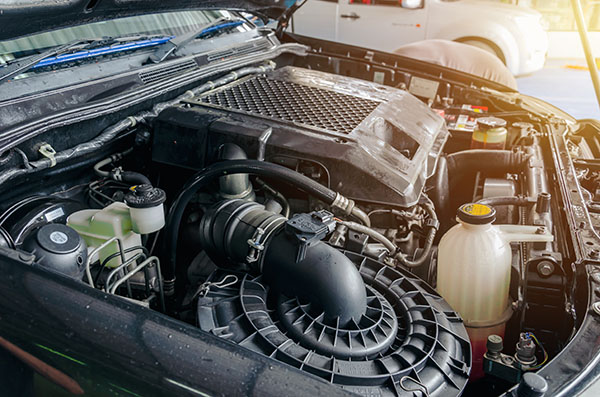Posted on 12/15/2023

We've all felt that sinking feeling as the temperature gauge creeps up, threatening to push into the red. It's more than just a gauge going high; it's a clear warning that your vehicle's cooling system is faltering, putting your engine at risk of overheating. That needle edging into dangerous territory can spell out roadside headaches, costly repairs, or even a full-on engine meltdown. But fear not! Keeping your car's cooling system in check isn't rocket science – it's straightforward with the right know-how. A Breakdown Of Your Vehicle's Cooling System Your vehicle's cooling system is like a silent sentinel, working tirelessly behind the scenes to maintain an optimal operating temperature for your engine. Neglecting this vital component can lead to decreased performance, efficiency losses, and, in severe cases, catastrophic engine failure. So what can you do to keep this component performing at its best? Regul ... read more
Posted on 11/27/2023

The road beneath your wheels is an ever-changing terrain, demanding a suspension system that can seamlessly adapt to the twists and turns of your journey. From bumpy off-road trails to smooth city streets, the right suspension can make all the difference in your driving experience. Join us as we embark on a captivating exploration of the diverse types of suspension systems, each designed to cater to specific driving needs, ensuring a smooth and comfortable ride for every car enthusiast. Conventional Coil Spring Suspension The conventional coil spring suspension system is still widely used in many vehicles due to its reliability and cost-effectiveness. The system comprises coil springs and shock absorbers that work together to absorb shocks and vibrations, providing a comfortable and stable ride for everyday driving. Its simplicity and durability make it a popular choice for a wide range of vehicles, from compact cars to SUVs. Air Suspension System ... read more
Posted on 10/30/2023

As the leaves begin their colorful descent and a chill creeps into the air, it's a reminder that the fall and winter seasons are on the horizon. While many of us relish the beauty of these colder months, our cars may not share the same sentiment. As temperatures drop and road conditions change, the importance of changing your tires becomes a critical safety measure that could mean the difference between a smooth ride and a white-knuckle commute. 1. Traction Matters When it comes to navigating slippery roads covered in rain, sleet, or snow, traction is your best friend. Fall brings unpredictable weather, and winter ushers in icy challenges. All-season or summer tires, which may have served you well during the warmer months, lose their grip in low temperatures. Winter tires, however, are specifically designed with a softer rubber compound that remains flexible in the cold, providing the grip needed ... read more
Posted on 9/28/2023
.jpeg)
When you're at the pump, you might not think much about what happens after you fill up your vehicle with fuel. However, the way fuel is delivered into your engine is fascinating and differs from vehicle to vehicle, especially if it's a diesel or gasoline one. Fuel Injection Basics Before we delve into the distinctions, let's briefly understand what fuel injection systems do. Fuel injection is the process of delivering the right amount of fuel into the engine at precisely the right moment. This process is crucial for optimal combustion, power production, and emissions control. Gasoline Fuel Injection Now that you have a better understanding of the fuel injection process, let's look at two of the main types of systems found in gasoline engines. Port Fuel Injection (PFI) Gasoline engines primarily use port fuel injection. In th ... read more
Posted on 8/29/2023

Your car's steering wheel is the primary interface between you and the road, allowing you to navigate smoothly and safely. So, when you encounter the unsettling experience of a hard-to-turn steering wheel, it can be alarming and even dangerous. Understanding the potential causes behind this issue and knowing what steps to take can help you address the problem promptly and get back to driving with ease. Low Power Steering Fluid One of the most common reasons for a hard-to-turn steering wheel is low power steering fluid levels. Power steering fluid is essential for assisting you in steering your car effortlessly. When the fluid level is insufficient, the hydraulic assistance diminishes, resulting in increased effort required to turn the wheel. To remedy this, locate the power steering fluid reservoir (usually near the engine) and check the f ... read more